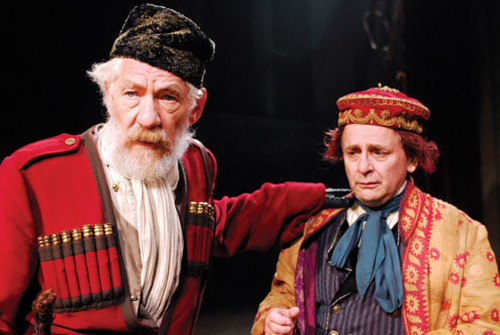
When British Airways paid the fool
That sir which serves and seeks for gain,
And follows but for form,
Will pack when it begins to rain,
And leave thee in the storm.
In literature, as in the above quote from Shakespeare’s King Lear, the fool is used as a symbol of common sense and honesty. He is given a license to speak freely and even to mock the court and even the king. While other ‘better’ placed people could give the same advice, they are often too scared of the reaction and the potential impact on themselves to say anything. So while in some ways the lowest member of the court, a jester could be one of a monarch’s most useful advisers and thereby actually be afforded status and privilege.
It is said that Queen Elizabeth I once rebuked one of her fools for not being sufficiently severe with her.
 Enter – stage left; Paul Birch, an executive who had worked for British Airways for 17 years on everything from mergers to marketing. He had threatened to leave the company on a number of occasions and in 1994 was considering it again.
Enter – stage left; Paul Birch, an executive who had worked for British Airways for 17 years on everything from mergers to marketing. He had threatened to leave the company on a number of occasions and in 1994 was considering it again.
“Every time I was ready to leave,” he recalls, “my boss would say, ‘I’ve got an interesting job for you.’ Finally I announced, ‘It’s time for me to go.’ He said, ‘What would it take to keep you?’ ”
Now Birch had recently read an article on the character of the Fool in King Lear, and decided he would try writing his own a job description for a company fool – someone who would question authority, promote honesty, and approach problems in creative ways.
The then CEO Colin Marshall “thought it was a great idea,” Birch says, and he was duly anointed as BA’s first Corporate Jester.
The next 18 months of Paul’s career can be described as interesting – but never dull.

Birch gave pointers to top BA executives on how to be less confrontational.
He made suggestions about the architecture of the company’s headquarters.
To promote creativity, he encouraged managers to chase one another with water guns.
Though a fool he took his job seriously “One of the roles of the jester is to declare, ‘Just because you’re the boss doesn’t mean that you know better. The jester’s role is to draw attention to things that are going wrong, to stir things up.”
One specific problem he got involved in was trying to creating a more sensible policy for seat allocation.
Under BA’s old system, customers expected to get seat assignments when they made their reservations. But since airlines often overbook flights, customers who made late reservations did not always get assigned seats – even if they were paying full fare. They were forced to wait at the gate with the other passengers who had confirmed seats even though some of them had paid substantially less for their tickets. Not surprisingly some of the full fare paying passengers were getting very angry.
The whole system made no sense to Birch “You had riots on your hands, if you’re putting off customers to the extent that they attack your staff, something is wrong.”
 Birch wasn’t expected to solve the problem himself but to help BA employees work together as a team and find a solution that would help alleviate the pressure the current system was causing.
Birch wasn’t expected to solve the problem himself but to help BA employees work together as a team and find a solution that would help alleviate the pressure the current system was causing.
As part of this, Birch set out to “to change the state of the group” and one approach he used was a game of “Giants, Witches, and Dwarves,” which divides people into three groups.
“If you’re a giant, you have to wave your arms in the air and shout at the top of your voice. If you’re a witch, you have to cast spells. If you’re a dwarf, you have to get down on your knees and beat the knees out from other people. So there’s a whole group of people doing these daft things – but they’re doing those things as a team.”
In the end the team redesigned the system so that only tickets bought at a certain price were guaranteed pre-booking of a seat while the remaining majority of customers received their seat allocation at the airport.
Looking back Birch says “When things go wrong, employees usually have a good idea of how to fix them. You need to create a state in which they’ve got the commitment and the courage to do something. You want to build organizations where everyone sees provocation as one of their essential roles.”
Footnote: Like other jesters Birch relied on the tolerance and support of his masters and when Bob Ayling took over from Colin Marshall, things changed. Ayling is reported to have said “You’ve been taking the piss for the last year and it’s got to stop.” Birch’s plea that ‘taking the piss’ was what he was supposed to do fell on deaf ears and he was sacked. Birch went on to set up his own company and started playing the fool for other companies.